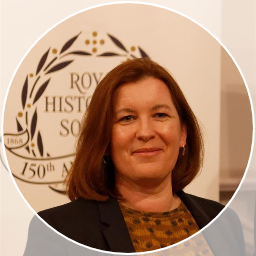

Professor Anne Murphy
Summary
I am Professor of History and Deputy Vice-Chancellor (Education). I am responsible for the strategic leadership of all educational matters and oversight across a wide range of University matters ensuring the provision of an excellent education and experience for students. I was appointed to that role in November 2023, having previously been Executive Dean of Humanities and Social Sciences at UoP.
Prior to joining UoP in March 2021, I worked at the University of Hertfordshire, starting there as a lecturer in History in 2009 and subsequently serving as Head of History, Associate Dean Research and latterly as Dean of the School of Humanities. Academia is my second career. I previously spent twelve years working in the City trading interest rate and foreign exchange derivatives.
My research focuses on early modern financial markets and investment behaviour and the organisation and management of the 18th-century Bank of England. The former interest has also led to an extensive exploration of the correspondence of the Jeake family of Rye, which, among all sorts of interesting gems, contains a series of letters detailing Samuel Jeake’s use of London’s financial markets during the 1690s.
My publications include articles in Past and Present, Economic History Review, History, Financial History Review and Women’s History Review. My monograph published by Cambridge University Press entitled The Origins of English Financial Markets: investment and speculation before the South Sea Bubble was winner of the Economic History Society’s first monograph prize in 2010. I have also published a sourcebook for the British Academy Records of Social and Economic History series entitled The Worlds of the Jeake Family of Rye, 1640-1736.
My latest monograph: Virtuous Banking: a day in the life of the late eighteenth-century Bank of England was published by Princeton University Press in 2023. The book presents an in-depth study of the eighteenth-century Bank of England at work. It was awarded the Wadsworth Prize by Business Archives Council. The prize is awarded to books judged to have made an outstanding contribution to the study of British business history.
Research outputs
2023
Virtuous Bankers: A Day in the Life of the Eighteenth-century Bank of England
Murphy, A. L.
9 May 2023,
Research output: Book
